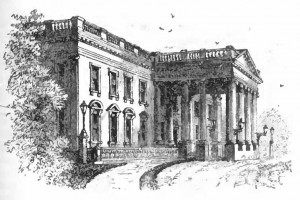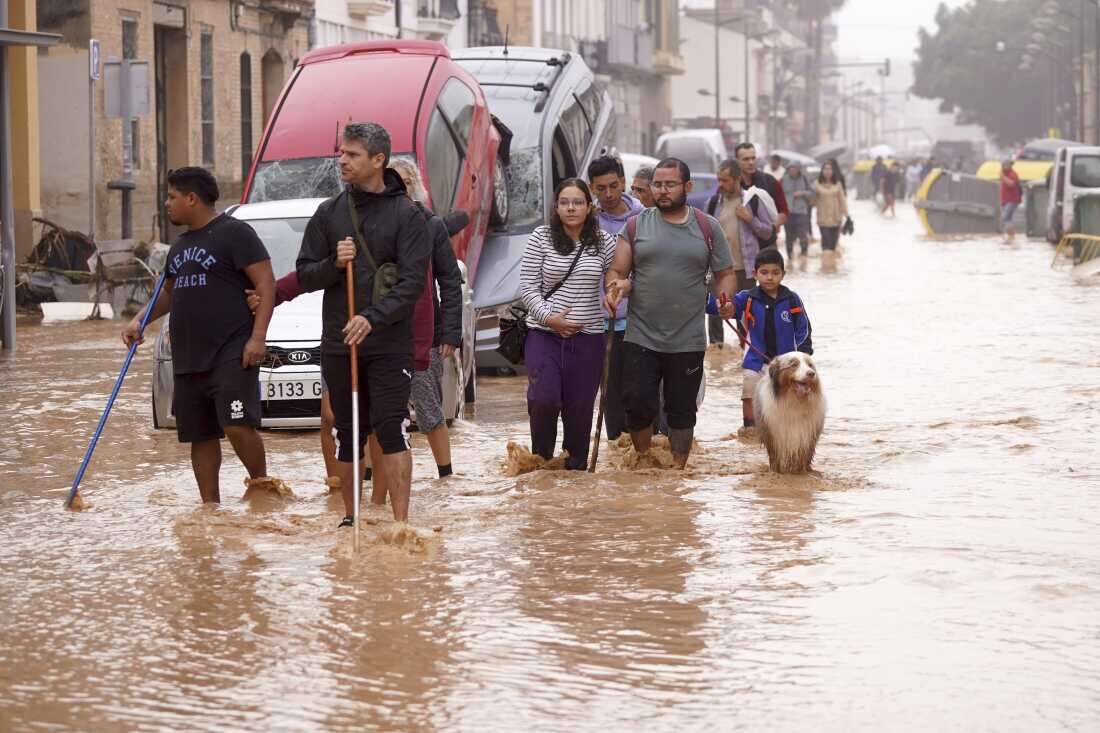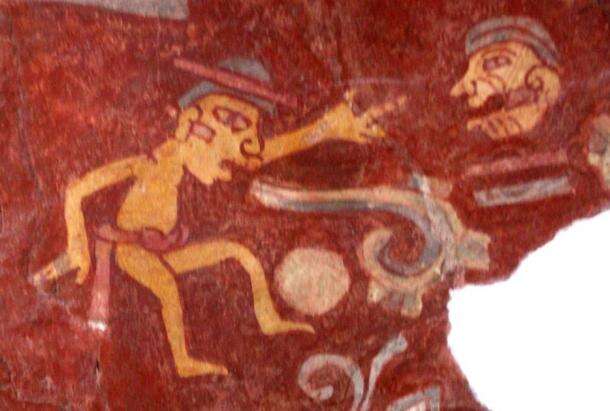Social Science Pedagogy in the 21st Century: What Should We Be Doing?
by Robert Fitzgerald
“Society is never redeemed without effort, struggle, and sacrifice.”[1] American progressive educator George Counts included this statement in the introduction of his most celebrated work titled Dare the School Build a New Social Order? While this is a relevant statement for all nations, it is particularly pertinent for those such as America whose heritage is grounded in the democratic principles of liberty, equality, and justice under the law. Published in 1932, Counts’s treatise was an impassioned plea for educators to reconsider their responsibilities in light of the Great Depression and the factors that had contributed to it. Much like it is in these dark times of ours, American society at that time was in need of change and education had an important role to play. “If we wait for a solution to appear like the bursting of the sun through the clouds,” he avowed, “we shall wait in vain.”[2]
 According to Counts, education is expressive of the society in which it operates, and the American system of the mid-twentieth century reflected the political, social, and economic characteristics of that era – individual rather than social-oriented, exclusive rather than inclusive in nature. As he wrote twenty years later, “Education can never be a purely autonomous process, independent of time and place and conducted according to its own laws.”[3] It is, according to Counts, “always a function of some particular civilization at some particular time in history.”[4] In his opinion, that time in American history called for a “truly great education” to be contrived. Specifically, it required “an education for freedom and humanity” if the promise of American life was to be ensured for at least another generation.
According to Counts, education is expressive of the society in which it operates, and the American system of the mid-twentieth century reflected the political, social, and economic characteristics of that era – individual rather than social-oriented, exclusive rather than inclusive in nature. As he wrote twenty years later, “Education can never be a purely autonomous process, independent of time and place and conducted according to its own laws.”[3] It is, according to Counts, “always a function of some particular civilization at some particular time in history.”[4] In his opinion, that time in American history called for a “truly great education” to be contrived. Specifically, it required “an education for freedom and humanity” if the promise of American life was to be ensured for at least another generation.
For twenty-first century Social Science teachers, the concerns expressed in Counts’ works represent the dilemma we face regarding our role in preserving the democratic principles mentioned above. As those responsible for teaching about society and ensuring these principles are secured both now and in the future, we must reflect on what we do in light of the current social, political, and economic climate in this country. If our democratic society and its principles are to be redeemed and endure, it will not come without the effort, struggle, and sacrifice Counts spoke of. It will not come without action.
Much has been written about Social Science pedagogy in terms of instructional practices. Books by authors such as Sam Wineburg are illuminative in helping teachers think about, prepare, and execute lessons where primary source analysis and questioning for critical thought are emphasized.[5] Many works, including Wineburg’s, are excellent and should be considered valuable resources for Social Science teachers interested in moving their classes away from rote memorization of textbook facts towards more critical and capacious forms of inquiry. That being said, few works go beyond practice. Limited in scope, most texts fail to address the greater function of Social Science teachers, particularly in regards to the significance of their subject area and what they are responsible for teaching. Fewer specifically address their role in the spirit of Counts’s claim concerning the social order and the endurance of democratic society. Simply put, there are limited resources on Social Science pedagogy that reflect Counts’s plea for active engagement on the part of educators.
An important question to ask at this point then is what exactly is our role as Social Science teachers and how should we fulfill that role? What responsibilities do we have to respond to the crisis facing our democratic way of life rather than quietly acquiesce while we complain furtively behind closed doors and in the privacy of our offices? Dare we, the Social Science teachers of today, involve ourselves in the building of a new social order, one that might once again represent the moral and intellectual virtues of the system we so proudly proclaim to have inherited? Dare we embrace a pedagogy that is grounded in principles of social justice, one that recognizes the importance of not only the individual, but more importantly the common good? If reclaiming a democratic society is to be hoped for and its principles passed on to coming generations of young people, I insist that social and political questions such as these should be central to our considerations of teaching in the Social Sciences.
Our democratic heritage, according to Counts, is both unique and glorious. It has been entrusted to all Americans as have the mechanisms to sustain it, including public education. We are who Thomas Jefferson referred to as “the most effectual means of preventing” the gradual perversion of democracy into tyranny.[6] It is to us that Horace Mann’s “great equalizer” and “balance-wheel of the social machinery” functions have been bequeathed.[7] To what shall society turn in matters concerning its wellbeing other than the Social Sciences, the Humanities, or the Liberal Arts? To whom shall they look to other than the philosophers, sociologists, historians, anthropologists, and those others dedicated to critically contemplating progress rather than blindly encouraging it for its own sake? Such persons are the protectors of the common good, the securers of the safety of the commonwealth, and the ensurers of the welfare of the state, all of which have been historically enumerated as the reasons for having education in the first place. We are needed – dare we accept the call.
As the title of a recent symposium held at Illinois State University on History and Social Science pedagogy suggests, the time is now. To wait any longer would move us all from quiet acquiescence to active participation in the degradation of American society and the principles upon which it was erected. As Howard Zinn has rightfully insisted, neutrality is unacceptable while on a moving train.[8] If we care and are daring enough, we will take action. Counts once stated, “I believe firmly that a critical factor must play an important role in any adequate educational program, at least in any such program fashioned for the modern world. An education that does not strive to promote the fullest and most thorough understanding of the world is not worthy of the name.”[9] Now is the time for statements such as this to inform Social Science pedagogy across the country.
“Our obligations,” Counts iterated, “grow out of the social situation.”[10] If we contemplate this assertion long enough we just might begin to understand the advice he offers and its significance to contemporary Social Science teachers. What is our current social situation and what obligations does it present to us? John Kenneth Galbraith wrote two decades ago that a culture of contentment was emerging in America with greed and complacency as the dominant forces shaping our affairs.[11] According to author Susan Jacoby ours is an era characterized by anti-intellectualism and anti-rationalism.[12] Psychologist Jean Twenge considers modern American society as suffering from an epidemic of narcissism.[13] Morris Berman, a contemporary social critic, asserts that American culture has reached its apex and is moving towards a new Dark Ages.[14] Henry Giroux has suggested that casino capitalism and a politics of entropy have come to dominate America, both factors associated with neoliberalism, its current ideological stranglehold on the nation, and the degradation of democratic society.[15] These are just a few of a plethora of contemporary scholars who have catalogued the current state of affairs in America and came to the conclusion that something is apparently amiss. If they are correct in their assessments, where do we go from here in regards to Social Science teaching?
In Education and the Promise of American Life, Counts identified indifference, ignorance, and corruption as the leading factors in the demise of democracy.[16] Can anyone deny that these factors are even more acutely prominent in our society today? In light of recent election statistics concerning eligible voter turnout, what other conclusions can we draw besides the painful truth that America is becoming increasingly politically indifferent?[17] According to the most recent Ipsos MORI poll, only Italy is classified as more uniformed concerning current events than the United States among developed countries.[18] Regarding corruption, Zephyr Teachout asserts that we have lost our sense of civic virtue in determining what is unscrupulous in American politics, rejecting an anti-corruption principle that is embedded in the Constitution itself.[19] Considering these factors and their place of prominence in contemporary America, I ask again, what are the specific obligations that we face as Social Science educators? If memorization and regurgitation of facts on standardized tests continues to dominate our pedagogy, what does that mean for the future of democratic society – and for the profession of Social Science teaching? How will we learn from our mishaps and escape what Henry Giroux called “the fog of historical and social amnesia” if all that matters is meeting standards and conforming to a curriculum that seeks only to sustain the status quo?[20]
America has a democratic heritage. What are we in the Social Sciences doing to reclaim it? As Counts poignantly asserted, “To refuse to face the task of creating a vision of a future America immeasurably more just and noble and beautiful than the America of today is to evade the most crucial, difficult, and important educational task.”[21] We – the Social Science teachers of twenty-first century America – must reject the sophistry of the industrial educational complex in favor of a critical and compassionate pedagogy grounded in democracy and its close companion, social justice. We have an obligation to combat the indifference, ignorance, and corruption Counts spoke of as ruinous to our sociopolitical arrangement. We must accept our role as the purveyors of these principles – liberty, equality, and justice under the law – upon which this nation was established. We must take the lead in helping create the noble and beautiful vision for the America of tomorrow. A refusal to do so, as Counts firmly maintained, is an evasion of our most fundamental responsibility.
It was Herbert Croly who wrote a generation before Counts that the promise of America was an ideal accepted since the founding of the nation. “[That] the future will have something better in store for [its citizens] individually and collectively than has the past or the present,” was what he believed informed this promise and its guarantee for all Americans.[22] Counts reiterated this almost forty years later when we wrote, “The proposition that the future can be better than the past is an essential and even distinctive part of our heritage.”[23] The question all Americans should be asking is whether or not this promise is still attainable. The question specific to Social Science teachers is what are we doing to ensure it is.
Eighteenth-century French revolutionary Georges Danton, in a time of discord and conflict, uttered the now famous statement Il nous faut de l’audace, encore de l’audace, toujours de l’audace (We need audacity, more audacity, always audacity). Audacity is exactly the spirit Social Science teachers must adopt in this neoliberal conjuncture. Only then will we embrace the responsibility bequeathed to us. Only then might we build a new social order, one that reflects the promise of America as articulated by Croly and Counts. Considering that the America in which we currently live is becoming increasingly contradictory to the principles upon which it was erected and the democratic heritage we proudly proclaim to have inherited, the time is truly now.
[1] George S. Counts, Dare the School Build a New Social Order (London: Feffer & Simons, 1932), 2.
[2] Ibid., 18-19.
[3] George S. Counts, Education and American Civilization (New York: Teachers College, 1952), 33.
[4] George S. Counts, Education and the Promise of America (New York: MacMillan, 1946), 23.
[5] Sam Wineburg, Historical Thinking and Other Unnatural Acts: Charting the Future of Teaching the Past (Philadelphia: Temple, 2001).
[6] Thomas Jefferson, “A Bill for the More General Diffusion of Knowledge,” Monticello, accessed January 15, http://www.monticello.org/site/jefferson/bill-more-general-diffusion-knowledge.
[7] “Horace Mann on Education and National Welfare,” accessed January 15, 2015, http://warnerc.pbworks.com/f/HORACE+MANN+ON+EDUCATION+AND+NATIONAL+WELFARE.pdf.
[8] Howard Zinn, You Can’t Be Neutral on a Moving Train: A Personal History of Our Times (Boston: Beacon, 2002).
[9] Counts, Dare the School, 9.
[10] Ibid., 28.
[11] John Kenneth Galbraith, The Culture of Contentment (Boston: Houghton Mifflin, 1992).
[12] Susan Jacoby, The Age of American Unreason (New York: Vintage, 2008).
[13] Jean M. Twenge, The Narcissism Epidemic: Living in the Age of Entitlement (New York: Atria, 2009).
[14] Morris Berman, The Twilight of American Culture (New York: W.W. Norton, 2000).
[15] Henry Giroux, Zombie Politics and Culture in the Age of Casino Capitalism (New York: Peter Lang, 2011).
[16] Counts, Education and the Promise, 92.
[17] Jose A. DelReal, “Voter Turnout in 2014 was the Lowest Since WWII,” The Washington Post, November 10, 2014, http://www.washingtonpost.com/blogs/post-politics/wp/2014/11/10/voter-turnout-in-2014-was-the-lowest-since-wwii/.
[18] Tom Randall, “Way to Go, Americans: We Are Almost as Ignorant as Italians,” Bloomberg, October 31, 2014, http://www.bloomberg.com/news/articles/2014-10-31/way-to-go-americans-we-re-almost-as-ignorant-as-italians-.
[19] Zephyr Teachout, Corruption in America: From Ben Franklin’s Snuff Box to Citizens United (Cambridge: Harvard University, 2014) and “The Anti-Corruption Principle,” Cornell Law Review 94 (2009): 341-413.
[20] Henry Giroux, “Beyond Orwellian Nightmares and Neoliberal Authoritarianism,” truth-out, October 15, 2014, http://www.truth-out.org/news/item/26817-henry-a-giroux-beyond-orwellian-nightmares-and-neoliberal-authoritarianism.
[21] Counts, Dare the School, 55.
[22] Herbert Croly, The Promise of American Life (Cambridge: Belknap, 1965), 3.
[23] Counts, Education and the Promise, 33.
Related News
News Listing

By Rosemary Kasiobi Nwadike ➚
Feminist Miseducation in the Afro-West: Examining (In)Formal Gender Indoctrinations
Articles, Education, Resistance, Social Justice
July 11, 2025

By Joban Sihota ➚
Natural disaster and civic literacy— Language acquisition in the wake of DANA
Articles, Cultural Pedagogy, Education, Public Education
July 8, 2025

